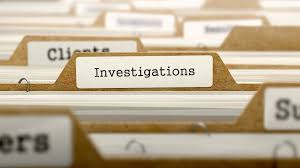Improving Your Internal Investigation Program (Part I of III)

In the compliance idea marketplace, there has been an increased focus on the importance of maintaining an organization’s speak up culture and the importance of a reliable and efficient internal investigation program.
From a practical standpoint, if a company has a defective program for encouraging reporting, and conducting timely and efficient investigations, the company is likely to suffer from some serious breakdowns in conduct and potential legal exposure. Eventually, a company’s deficiencies in this area will catch up with it, and the company will suffer real harm.
Companies are starting to understand that an effective internal investigation program is a critical function to promote a speak up culture. A company that has a dysfunctional internal investigation program will find it difficult to prevent and detect misconduct.
By contrast, a company that maintains an effective internal investigation program by adhering to its standard operating procedures, treating whistleblowers with respect and preventing any hint of retaliation, meting out consistent discipline, integrating investigation findings into compliance program enhancements and reporting on a transparent basis to employee about the performance of its investigation and discipline program – will advance the company’s culture and maximize potential reporting of code of conduct and legal violations.

To this end, companies have to commit to a multi-step review and improvement process for its internal investigation program. This is an exercise that is limited to reviewing the operation of the internal investigation program from the receipt of a reported concern to the conclusion of the investigation and handling of the results. Everyone has a list of best practices in this area and a perspective on investigations. To address this issue, companies have to turn a skeptical and internal eye to review its internal investigation program and include a specific and detailed audit of investigations and the manner in which they are handled. Such a review is important to ensure that a company’s internal investigation program operates properly.
My experience in this area has confirmed that a company will be surprised by what it finds – most companies have difficulty ensuring proper and consistent internal investigations are conducted. There are a number of variables that can influence this review and it is important to use as many objective measures as possible.
A comprehensive audit should be conducted every three years. During the interim period, a proactive sampling audit of internal investigations should be conducted to ensure that performance is improving.
A commitment to review, audit and enhance an internal investigation program is a valuable initiative. It is important to publicize such an inquiry, announce the results in general terms and then commit to remediation and improvements to the internal investigation program.

Some companies may resist such a review – that is a serious mistake. If a company objects to such a review, the company is confirming its failure to commit to audit and remediate its internal investigation program reflects its fear of facing potential challenges. Such resistance will be viewed cynically by interested constituencies and ultimately by company employees.
In this series, I want to outline how to review and audit your internal investigation program, to develop meaningful metrics, to raise the proper issues, and ultimately, to improve your speak up culture and the critical internal investigation function.















1 Response
[…] Mike Volkov explains in a 3-part series on his blog site Corruption, Crime and Compliance. (Part 1, Part 2, Part 3) If. You prefer the audio format of a podcast, click […]